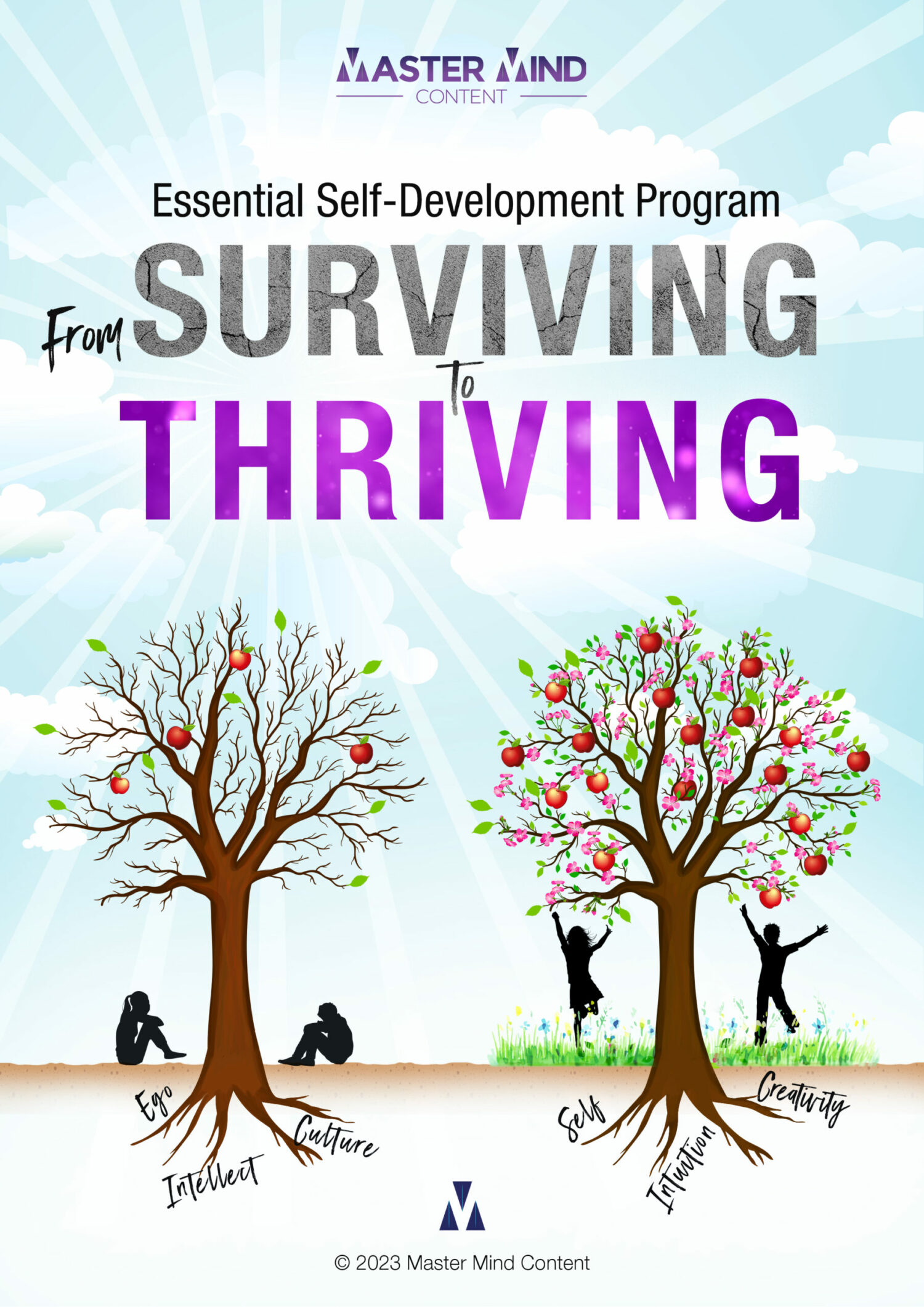
Self-love and self-compassion are requisites for nurturing self-esteem.
There are many ways to bring more self-love and self-compassion into your life. The good news is that many of these practices are fairly easy to integrate into your usual routine.
But even strategies that do involve a change to your daily routine promise to deliver higher rewards for your effort.
Below, we’ve listed 12 self-love and self-compassion strategies you should try to develop self-esteem.
Self-criticism can cause you to have a self-defeating view of yourself. Even if you’re only programmed to feel unloveable and unworthy on a subconscious level, consciously criticising yourself is a signature tune of wounded archetypes that need to develop self-love.
Try to be mindful of how you speak to yourself. Make a note of the times that you use words like stupid, idiot, failure, pathetic, loser, douchebag…you get the idea.

When you catch self-criticism, reverse it. Say, no that’s not true, you’re actually successful, brilliant, smart, clever, loveable etc. And if you have experiences that you can draw on to validate why you are successful, brilliant etc, give yourself a gentle reminder of that.
Actually, no, fuck it, don’t be gentle, reel all your best qualities off to your heart’s content.
People who lack self-love typically have a subconscious program that they will be rejected, abandoned, failed or disappointed in some way. When you feel like this, you may not bother trying.
If your epithet is “What’s the point”, change your tune. The point is that you can achieve anything you set your mind to if you are capable of developing the skills, knowledge and personality.
Of course, you have to be realistic when you’re setting goals, but you have a habit of setting a low bar — because you’re too afraid to fail — you’re denying yourself opportunities.
When you are courageous and chase opportunities you are perfectly capable of achieving, you learn to love and respect yourself more than if you hold yourself back and pick low-hanging fruit.
If you need to nurture self-love, grab opportunities with both hands. When you succeed, you learn to trust yourself, and thus grow beyond the Hero into the Warrior. And if you fail, learn from your mistakes, be compassionate with yourself then keep trying until you succeed.
How you view yourself has a significant impact on how you experience life. Your self-worth influences the decisions you make, how you nurture and maintain relationships, which opportunities you pursue (or don’t) and your overall emotional well-being.
A lack of self-esteem can also make you do things you don’t really want to do but do them anyway — because you don’t want to be rejected. You want to be liked and fit in.
Subsequently, you may do something that is degrading, embarrassing, risky or foolish. If you do anything you later regret, you’re feeding self-hate and neglecting self-love.
It can often be the case with people who lack self-love to hide what they think and feel. In particular, you won’t ask people for help when you need it and you won’t talk about your problems because you feel guilty unbridling your burdens onto somebody else.
Studies show that bottling up emotions can lead to mental and physical health issues. It’s important to speak about how you feel, and contrary to what you may believe, opening up and making yourself vulnerable will more often than not strengthen your relationships.
So the next time you need more emotional or physical support, don’t soldier on or repress your emotions. Ask for help. People are usually willing to help if they have the time, energy and resources.
It’s no secret that engaging in activities that stoke your passion makes you feel happy and energised. You know that from personal experience. The issue for most of us is that we don’t have enough time to do the things we love.
Yup, work gets in the way of life, but so too does the life you are living that you are not enjoying. If you’re feeling miserable and spend your spare time watching TV all night, the chances are that watching TV is not pulling your passion chord.

In short, stop wasting time doing shit that does not serve your best interests. You can measure whether something is nurturing your self-love or not by how you feel afterwards.
So ask yourself whether the time you spent on something is worthwhile. If it is, keep doing it. If it’s not, stop doing it and find something worthwhile to do instead.
There are also solutions on the job front. If you hate your job, or at the very least, no longer feel satisfied with the profession you have pursued, you should probably find a job that you can enjoy more.
The rule of thumb here is not to simply switch companies within the same profession otherwise you will find yourself with the same level of dissatisfaction upstream.
Your new job should be something that you are passionate about. Alternatively, start your own business. If you have your own venture, your business becomes your passion even if you are still working in your field of expertise. But ideally, your new business should be focused on something you are passionate about.
When you feel as though you don’t fit in, you’re spending your time with people who do not share your interests, mindset or worldview. This feeling can hack away your self-esteem and breed hate.
And hate can become self-hate, and self-hate becomes anger, frustration and potential violence. Feelings of hate never end well.
On the flip side, when you hang around with like-minded people, you feel accepted, appreciated and loved. You’re able to converse about things you enjoy speaking about and do things you are passionate about. Whilst you are doing all this, you’re building deep and meaningful relationships. Meaningful relationships are so important for developing self-love.
The first point to note here is that your priorities are your responsibilities. The second point to note is that having some form of responsibility should be a priority.
When you are responsible for something or someone, it naturally becomes a priority. However, if you lack self-love, you may be prone to forgetting about your responsibilities.
Sure, you will make sure your children are fed and clothed, but are you giving them the emotional nourishment a child needs as well? That is a responsibility and should be a priority. You feel good when you do good.

You also have a responsibility to care for the feelings and well-being of others. That doesn’t necessarily mean taking care of their responsibilities as well as your own, but by what you say to people, how you treat them, and how much you let them know that you care.
Taking up these responsibilities results in the minor heartwarming exchanges you have with shopkeepers and the person sitting next to you on the bus. It helps you to build relationships in the office and be well thought of as a ‘jolly nice chap’ or a ‘lovely lady.’
I’ll say it again, when you do good, you feel good. Feed your self-love.
When you lack self-love, you might not feel worthy and deserving. Consequently, you constantly need reassurance and validation from others and go out of your way to be a people-pleaser.
The issue with this way of being is that it eventually leads to burn-out, you pin yourself to the cross of martyrdom and you become filled with resentment. None of this is good for nurturing self-love.
Lurking underneath this way of being is a subconscious program that you don’t offer value to the world. But the reason for that is that you have never taken the time to observe all the good you do in the world and give yourself credit for it.
Test this. Write a list of all the things you do for people that bring them value. You will be gobsmacked. Mover, you will be left thinking, “Actually, I’m f**king brilliant!”
If I haven’t already mentioned hate, anger and resentment enough in this article, these anti-love emotions deserve a heading of their own. They’re so toxic for self-love.
Hate, anger and resentment typically surface in people who suffered some form of physical or emotional abuse in their past. When this happens in early childhood, the child can even turn hate, anger and resentment in on themselves.

Whilst these poisonous emotions are usually the result of one person or a few people when you were younger, as you pass through life, you direct the hate, anger and resentment you’re harbouring towards other people en masse.
Naturally, projecting hate, anger and resentment onto other people does nothing for your relationships, and your self-esteem takes a knock. It’s even difficult to love yourself when you keep having moments you hate yourself for afterwards.
To overcome these negative feelings, the only cure is to let go of the past. Forgive whoever for doing whatever to you and move on. You don’t have to drive over to their house and become best mates, just simply accept it happened and there is nothing you can do to change that.
What you can change is your future. But you will only change your future if you change your subconscious programs. And if hate, anger and resentment are causing negative experiences, they are programs you should be looking to upgrade if you want to install self-love.
Everyone needs to relax at some point. You also need to be rewarded with quality time spent for yourself. Taking time out for yourself doesn’t necessarily mean spending time by yourself. Solitude is great at times as well. The point is that you need to take care of yourself.
When you don’t take care of yourself, you’re at risk of becoming ill. And then you’re no use to anybody. So always set some time aside each week to make sure you have some time to recuperate from the stresses of life and show yourself some respect by taking care of yourself. This is self-love in action.
Apollo’s famous maxim (no his other one) — everything in moderation — is a highly effective strategy for nurturing self-love, especially if you’re also simultaneously moving away from destructive behaviours and trying to instil a new way of being.
For example, if you’re dieting, there can be a tendency to deprive yourself which is not good for developing self-love and compassion. But recognising there has to be a balance, enables you to reward yourself with your favourite treat.

The same rule applies if you’re working too much and neglecting quality time with your family or some other activity that nurtures self-love. If you keep in mind that balance is essential for life, you won’t feel guilty doing things for yourself rather than other people.
Self-love is not about being selfish, it’s about being sensible. Use YOUR time wisely.
Failure is a fact of life. Everybody fails at most things until they learn how to do it. But when you lack self-love, you can be hyper-critical and feel bad about yourself whenever you fail or make a mistake.
But there’s the real mistake right there. Rather than beating yourself up about it, accept that you didn’t get it right this time. Make peace with the fact that you are allowed to fail. You can always have another go.
Studies show that this lesson in self-compassion could actually help you to have more hits than misses in the future. When you practice self-compassion you respond to stressful situations with more flexibility and resilience. And when you’re not totally stressed out, you invariably perform better as well.

